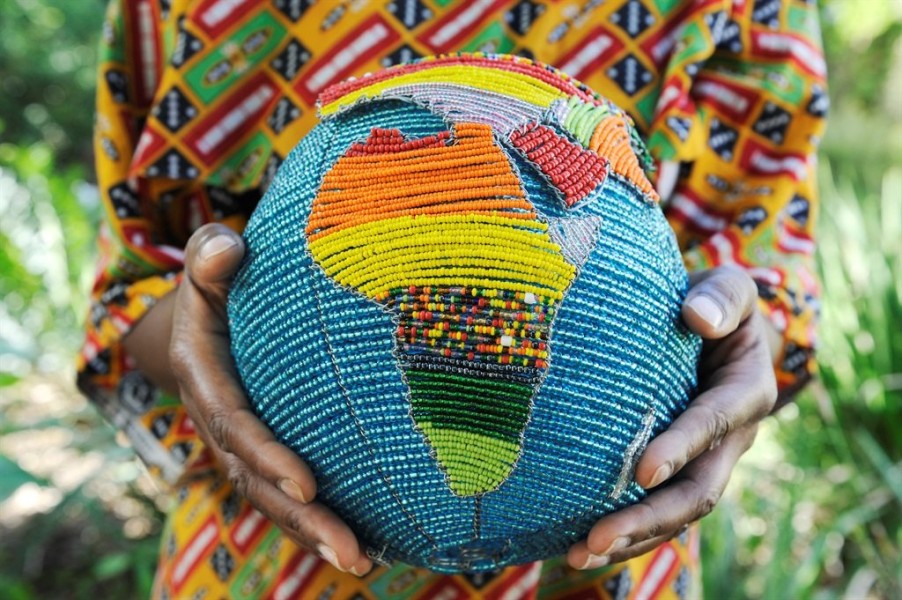Politically Weaponizing Past Pain Ensures African Stagnation
As South Africa approaches the 2024 general elections, a web of conflicting and misleading narratives has engulfed the media and social platforms, potentially shaping the course of events leading up to and during the upcoming polls.
A Central Theme: Historic Pains and Manipulation
Among the most prevalent and well-funded narratives are those that aim to resurface the deep-seated wounds of colonialism and apartheid, seeking to remind the black majority in South Africa of the enduring scars left by these historical injustices. These narratives emphasize the humiliation inflicted upon Africans by the systemic oppression of colonial rule and apartheid policies, with the intention of portraying Western Europeans as the perpetual enemies of black South Africans, regardless of their current locations.
A Tangled Web of Narratives
According to these narratives, Eastern European nations, including the former Soviet Union and contemporary Russia, are portrayed as allies of Africa due to their purported support during anti-colonial and anti-apartheid struggles. These narratives suggest that these countries hold the potential to foster mutually respectful political and economic relationships with African nations.
Meanwhile, narratives have taken root within some African countries, particularly South Africa, depicting a resurgence of leaders who were once at the forefront of the anti-apartheid movement. These leaders, now in their 60s and above, had fought against the oppressive system from diverse racial backgrounds, united by the goal of dismantling apartheid and establishing a government that transcended racial divisions.
The Shift in Vision
However, the inclusive vision that once united these leaders began to wane after the United Democratic Movement, a coalition of civil society movements opposing apartheid, merged into the African National Congress (ANC) in the early 1990s. This consolidation was met with naive optimism, and trust was readily placed in the ANC. Many of these once-respected anti-apartheid leaders subsequently transitioned into the country’s political and economic elite, benefiting from policies that leveraged guilt-infused tactics to redistribute wealth from the historical white economic elite.
An Expropriatory Form of Empowerment
These leaders capitalized on an expropriatory form of black economic empowerment, which involved obtaining shares in established white-owned businesses in exchange for little or no investment. While their names adorned shareholder lists, their involvement in business operations was often minimal due to their lack of expertise in the sectors they had joined.
Weaponizing Emotions for Political Gain
Amid the backdrop of the impending 2024 elections and the potential existential threat to their political positions, many of these leaders have resurfaced to evoke historical pain and invoke emotions linked to the era of colonialism and apartheid. The images and stories of brutality from that period have been strategically reintroduced to stoke anger and resentment, aimed at galvanizing support among black South Africans.
Selective Memory and Political Manipulation
Critics argue that these leaders have selectively embraced their past roles while omitting their participation in the post-apartheid era. Their current efforts to evoke historical injustices serve to divert attention from their own contributions to South Africa’s present challenges. By framing themselves as saviors and urging a renewed fight against colonialism and apartheid, these leaders sidestep accountability for their roles in the country’s recent history.
Global Patterns of Emotion Manipulation
The use of emotions in politics is not unique to Africa, as leaders worldwide have historically harnessed sentiments to further their agendas. From former US President Donald Trump to Russian President Vladimir Putin, leaders have leveraged emotional narratives to mobilize support, often bypassing democratic institutions to maintain their grip on power.
An Ongoing Challenge
In many African countries, the abuse of emotions in politics persists due to the limitations of democratic institutions and the concentration of power within ruling elites. The narratives driven by these elites often serve their self-interest rather than the collective good, perpetuating stagnation rather than fostering progress.
The Impact on Africa’s Future
As the emotionally charged narratives continue to circulate, they risk entrenching the existing political status quo, undermining genuine efforts toward progress and development. The exploitation of historical pain for political gain can inhibit constructive discourse and prevent real change from taking place. Without a shift away from such manipulative tactics, African nations may find themselves mired in cycles of false discussions, unable to break free from the grip of opportunistic politicians.



